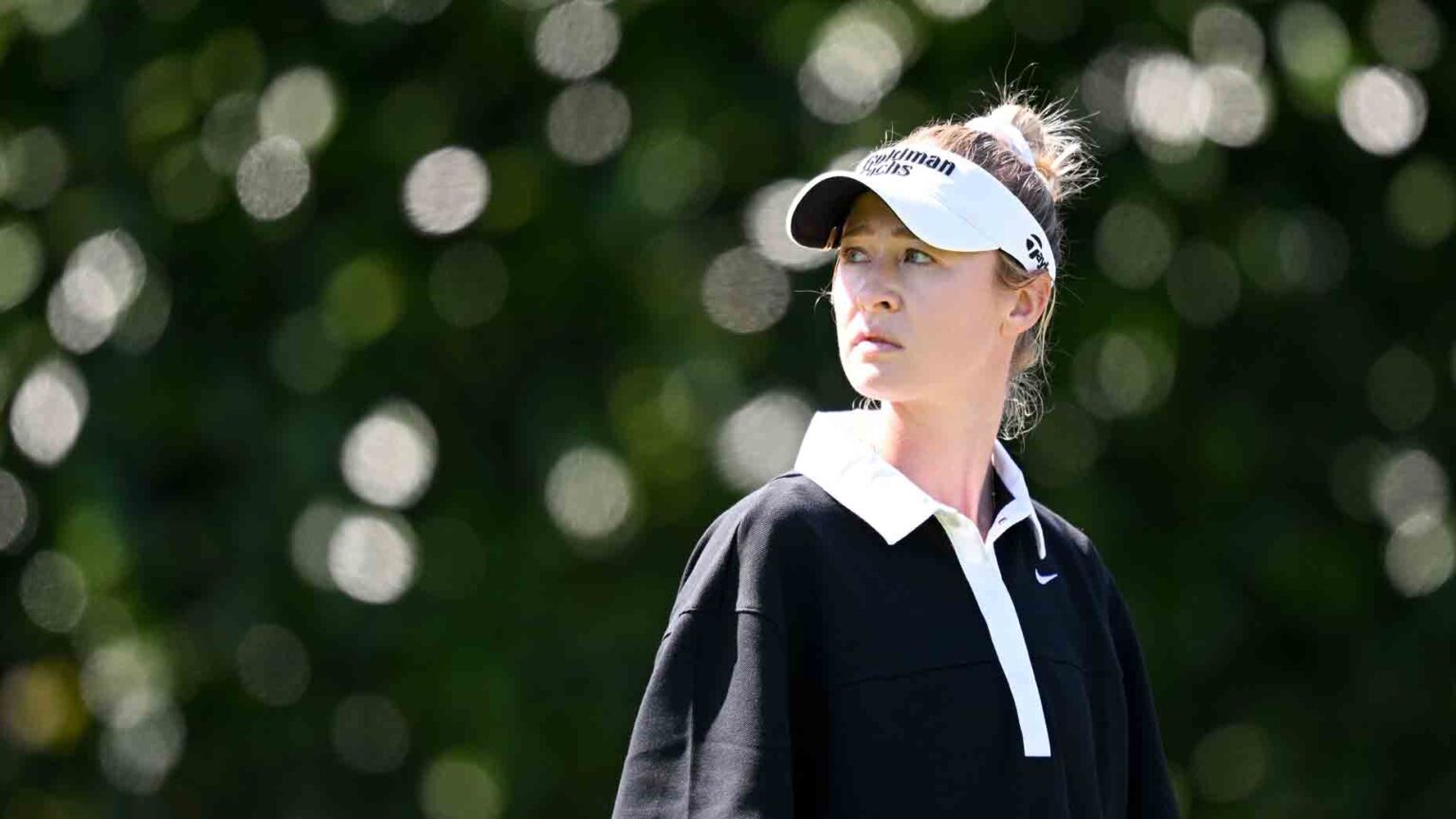The Slow Play Dilemma: Nelly Korda Speaks Out for Golf’s Future
Golf, a sport known for its elegance and precision, has recently been marred by a controversial issue: slow play. Top-ranked golfer Nelly Korda, a household name in the LPGA, has not only criticized this trend but also focused on the negative implications it bears on both players and fans alike. In this article, we delve deeper into Korda’s perspective on slow play, its effects on the game, and potential solutions being discussed within the golf community.
Understanding Slow Play in Golf
Slow play has become a hot topic in golf circles, with both amateur and professional players contributing to prolonged rounds. Nelly Korda emphasizes that slow play stretches the duration of the game significantly, stealing away the essence of golf’s natural flow. "When players take their time, not only does it increase the time on the course but also disrupt the rhythm of the game," she noted during a recent media inquiry ahead of the Amundi Evian Championship.
Impact on Players
Korda points out an unfortunate side effect of slow play: it compromises players’ performance. A sluggish pace hinders athletes from maintaining their focus, leading to mental fatigue. "The longer the rounds, the more mentally draining they become," Korda explains. The physical consequences are just as significant; standing and waiting can lead to stiffness, negatively impacting a golfer’s swing and overall performance.
The Perspective of Spectators
Slow play doesn’t just affect players; it also has ramifications for spectators. "For fans and family watching, having to stand around during slow play can be incredibly frustrating," Korda remarks. Fans often endure long hours under the sun, watching players dawdle near their golf balls or next to the tee box, which detracts from the excitement of the game. Showcasing a more dynamic golf experience could potentially enhance spectator engagement and attendance.
Korda’s Approach to Staying Focused
With pressure mounting from both peers and fans, maintaining focus becomes even more important. Korda’s strategy is straightforward: "At the end of the day, you’re playing for a championship." This mindset helps her tune out distractions, reinforcing the need to prioritize performance over the irritations caused by slow play. Her ability to compartmentalize these distractions reflects a maturity that many young athletes strive to achieve.
Changes in LPGA Policies
In response to ongoing criticisms regarding slow play, the LPGA has taken measures to encourage quicker rounds. Starting this year, the tour introduced penalties for players who exceed a set time limit for their shots. According to the new guidelines, players taking longer than 40 seconds will face fines, along with one- or two-stroke penalties for excessive delays. Korda acknowledges this policy shift as a positive development: "If players know that they might face penalties, they will naturally adapt their pace of play."
The Positive Effects of Penalty Implementations
Korda believes that these stricter regulations will lead to a notable improvement in tour events, allowing players to focus on their game without delays. "If penalty strokes can deter slow play, that’s a win for everyone involved." In a competitive environment where every stroke counts toward prize money, many players will likely straighten their pace to avoid unnecessary penalizations.
The Family Perspective on Slow Play
The need for faster play is especially vital for families with young children, according to Korda. Kids typically have shorter attention spans compared to adults, making long rounds less enjoyable for them. "Families want to share the experience of golf with their children, but slow play can turn that into a challenge," Korda reflects. Ideally, faster games would increase participation and enjoyment for all age groups.
The Importance of Flow in Golf
Flow is crucial in sports, and Korda believes that quicker rounds can encourage a more engaging atmosphere. "A game with more action and less stalling makes it way more enjoyable for everyone," she states emphatically. This sentiment resonates with golfers and fans who appreciate fast-paced games where every moment is filled with excitement.
Supporting Amateurs in Pro-Am Events
While Korda is vocal against slow play among professionals, she exhibits compassion for amateur players. She acknowledges that extended pro-am rounds can be valuable, citing her own experiences where connections were made that furthered her career. "Some of my best opportunities came from spending time with amateur golfers during pro-am events,” Korda explains, highlighting the balance between enjoying slower play in specific contexts and maintaining a professional pace during competitive settings.
Conclusion: The Future of Golf and Slow Play
As Nelly Korda navigates the complexities of the professional golfing landscape, her advocacy for reduced slow play shines through. Changes in LPGA policies aim to address this persistent issue, creating an environment where players can showcase their skills while keeping spectators engaged. The future of golf may depend on how effectively the community can tackle the slow-play dilemma, ultimately enhancing the experience for all involved. Whether you’re a seasoned pro, an amateur, or a passionate fan, it’s essential to embrace a more dynamic approach to the game of golf.
